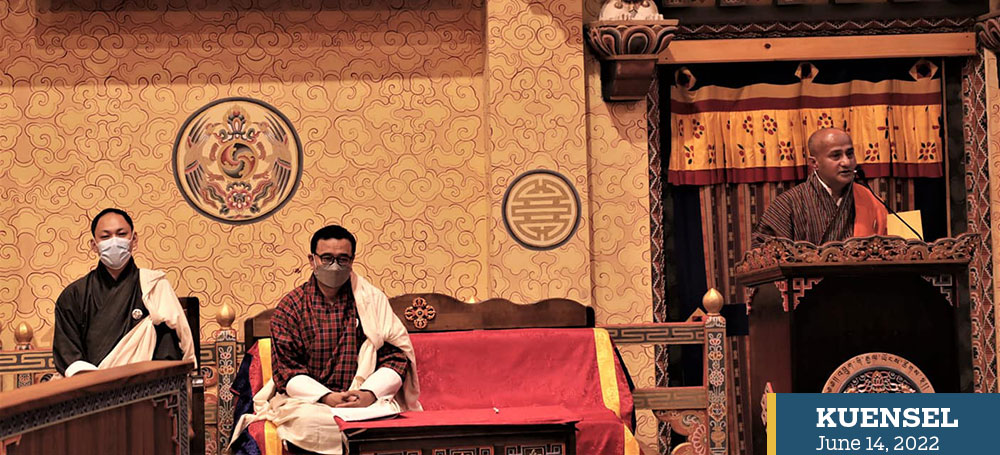Dechen Dolkar
The National Council (NC) supported the National Assembly’s decision for Bhutan to become a member of the international solar alliance (ISA) yesterday.
The Social and Culture Affairs Committee of NC accepted most of the amendments by National Assembly and amended some of the sections. The House accepted all the committee’s amendment.
Introducing the agreement to the house, Economic Affairs Minister Loknath Sharma said there are advantages of joining the agreement as solar energy is viable and feasible in the country.
“We will get technical and financial funding assistance since we don’t have technical experts in the country,” he said.
The government is also planning to produce about 300 megawatts (MW) units of solar energy within three to four years.
During the deliberation, Member of Parliament (MP) from Punakha, Lhaki Dolma, asked whether solar energy could create employment.
Mongar MP Sonam Pelzom said that solar energy has benefited some parts of the country like Lunana and Singye Dzong, but in places like Khenkhar and Jurmey, people use electricity to pump water from underground and for cold storage.
She asked how solar energy could benefit people without having to pay huge electricity bill.
MPs questioned the ministry’s plan to establish solar powerhouses at four locations and asked how the ministry is identifying the locations and where are the locations.
Lyonpo Loknath Sharma said the government has completed establishing 180KW and 80KW at Rubesa as a pilot project and they are configuring with transmission lines and how it will earn revenue in the future.
He said the ministry has identified seven different areas and suggested to Asian Development Bank (ADB), but after preliminary studies, three locations are feasible and will receive support.
The minister said that although the government has plans to set up, they have to depend on ADB because of financial and technical constraints. “If we join in agreement, we will get capacity-building assistance and financial support.”
The ADB has also set up solar rooftop pilot projects in some of the households where it is needed.
Lyonpo said that solar energy is not difficult and complicated as hydro energy and it is easy to set up.
Meanwhile, MP from Paro, Ugyen Tshering asked why the government is rushing to join the agreement.
Gasa MP Dorji Khandu asked about the plans for capacity building in the country.
He also asked how the government will prioritise 100 percent electricity coverage.
Trongsa MP Tashi Samdrup said that to set up solar energy, it requires maximum sunlight and whereas our country receives only about 2,500 hours of sunlight in a year. “Other countries receive sunlight for more than 36,000 in a year.”
He also raised concern about producing e-waste from solar energy in the future.
Danaga MP Surjaman Thapa asked if the government is planning to privatise the solar energy projects.
Lyonpo Loknath Sharma said that in Thimphu alone, it is possible to set up about 50MW of rooftop solar energy.
He also said Bhutan is also considered as a prospective member of ISA after the amendment of the Article VII of the Framework Agreement establishing ISA expands the scope of membership to all the members of the United Nations.
As per the Renewable Energy Master Plan (REMP 2016), Bhutan has huge potential for solar energy which can be harnessed to promote energy source diversification to complement the existing sources of energy to enhance the overall energy security of the country.
The minister said one of the means to realise the goal is through accelerated development and promotion of solar technology in the country for which enhanced collaboration and cooperation with other nations should be pursued.
“A membership with ISA could be an avenue to enhance the competence and skills of relevant agencies and professionals who will help expedite the promotion of solar technology in the country,” Lyonpo Loknath Sharma said.


